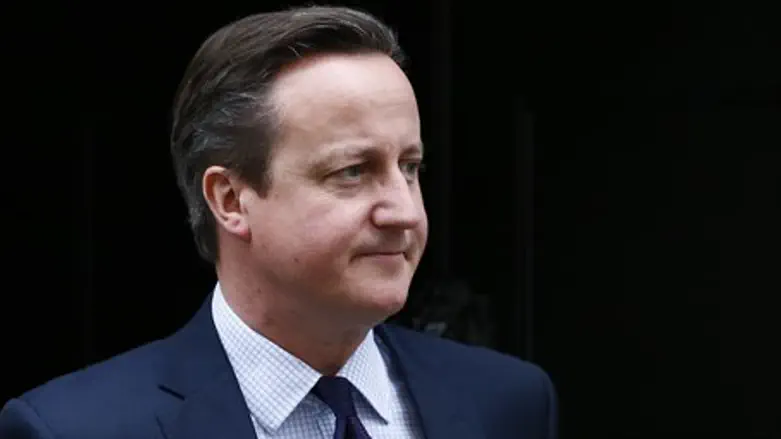
British Prime Minister David Cameron vowed on Monday to make his case for Britain joining air strikes on Syria this week as he unveiled a new defense strategy stressing counter-terrorism and intelligence.
Cameron said he would make a statement in the House of Commons on Thursday as he steps up pressure for MPs to back joining international action against Islamic State jihadists following the November 13 attacks in Paris, which killed 130 people.
His comments came as he presented the Strategic Defense and Security Review (SDSR), which maps Britain's military strategy for the next five years.
"As the murders on the streets of Paris reminded us so starkly, ISIL (another term for Islamic State or ISIS) is not some remote problem thousands of miles away -- it is a direct threat to our security at home and abroad," Cameron said.
"History teaches us that no government can predict the future... but we can make sure that we have the versatility and the means to respond to new risks and threats to our security as they arise," he added.
Cameron earlier on Monday visited Paris, where he met President Francois Hollande and paid tribute outside the Bataclan concert venue, where 90 people were killed.
"I firmly support the action President Hollande has taken to strike ISIL in Syria," Cameron said after talks in Paris, adding, "It's my firm conviction that Britain should do so too."
In his speech to parliament, Cameron also announced details of "a significant new contingency plan" in case of attacks in Britain, which would include the rapid deployment of 10,000 military personnel to support the police.
While British forces are taking part in air strikes on ISIS targets in Iraq, they are not involved in the international effort targeting Syria due to resistance from opposition parties still mindful of previous unpopular interventions in Iraq and Afghanistan.
In 2013, Cameron suffered a defeat in parliament when MPs voted against British military action against the Assad regime in Syria to deter the use of chemical weapons.
But last week, Britain’s Defense Secretary said Britain should "think again" about taking part in air strikes on ISIS jihadists following the attacks in Paris.
Labour's anti-war leader Jeremy Corbyn is against any military action but Cameron appears increasingly confident he can get enough support from Labour MPs to pass the vote, particularly after last week's UN Security Council resolution authorizing countries to "take all necessary measures" against ISIS.
AFP contributed to this reported.
